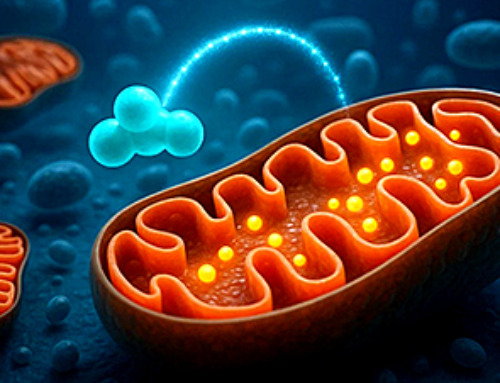Research indicates that COVID-19 survivors face doubled risks of severe cardiac events for years after recovery, especially if hospitalized.
People with A, B, or AB blood types are particularly vulnerable, highlighting the need for personalized approaches to heart health post-COVID.
COVID-19 and Cardiovascular Risk
A history of COVID-19 can double the risk of heart attack, stroke, or death, according to new research led by Cleveland Clinic and the University of Southern California.
The study revealed that individuals with any type of COVID-19 infection were twice as likely to experience a major cardiac event, such as a heart attack, stroke, or death, for up to three years following their diagnosis. This risk escalated significantly for patients who were hospitalized for COVID-19, surpassing even the influence of a previous history of heart disease.
Genetic Factors and COVID-19 Complications
Further genetic analysis indicated that individuals with non-O blood types (such as A, B, or AB) were twice as likely to suffer a severe cardiovascular event after COVID-19 compared to those with type O blood.
Published on October 9 in the journal Arteriosclerosis, Thrombosis, and Vascular Biology, the researchers used UK Biobank data from 10,005 people who had COVID-19 and 217,730 people who did not get infected between February to December 2020.
Global Implications of Cardiac Risks Post-COVID
“Worldwide over a billion people have already experienced COVID-19. The findings reported are not a small effect in a small subgroup,” said co-senior study author Stanley Hazen, M.D., Ph.D., chair of Cardiovascular and Metabolic Sciences in Cleveland Clinic’s Lerner Research Institute and co-section head of Preventive Cardiology. “The results included nearly a quarter million people and point to a finding of global healthcare importance that promises to translate into a rise in cardiovascular disease globally.”
Certain genetic variants are already linked to coronary artery disease, heart attack and COVID-19 infection. The researchers completed a genetic analysis to see if any of these known genetic variants contribute to elevated coronary artery disease risk after COVID-19. None of the known genetic variants were drivers of the enhanced cardiovascular events observed post COVID-19. Instead, the data highlighted an association between elevated risk and blood type.
Research Findings and Future Directions
Previous research has shown that people who have A, B, or AB blood types were also more susceptible to contracting COVID-19.
“These findings reveal while it’s an upper respiratory tract infection, COVID-19 has a variety of health implications and underscores that we should consider history of prior COVID-19 infection when formulating cardiovascular disease preventive plans and goals,” said Dr. Hazen.
“The association uncovered by our research indicates a potential interaction between the virus and the piece of our genetic code that determines blood type and signals the need for further investigation,” said Dr. Hazen. “A better understanding of what COVID-19 does at the molecular level may potentially teach us about pathways linked to cardiovascular disease risk.”
Hooman Allayee, PhD, of USC’s Keck School of Medicine, was co-senior author of the paper.
“Our data suggesting that risk of heart attacks and strokes was especially higher among COVID-19 patients with A, B, or AB blood types has significant clinical implications,” Dr. Allayee said.
“Given our collective observations and that 60% of the world’s population have these non-O blood types, our study raises important questions about whether more aggressive cardiovascular risk reduction efforts should be considered, possibly by taking into consideration an individual’s genetic makeup.”
The findings show that the long-term risk associated with COVID-19 “continues to pose a significant public health burden” and that further investigation is needed, according to the authors.
For more on this research, see How COVID Continues to Threaten Your Heart Years After Infection.
Reference: “COVID-19 Is a Coronary Artery Disease Risk Equivalent and Exhibits a Genetic Interaction With ABO Blood Type” 9 October 2024, Arteriosclerosis Thrombosis and Vascular Biology.
DOI: 10.1161/ATVBAHA.124.321001
This work was supported by the National Institutes of Health [R01HL148110, R01HL168493, U54HL170326, P30ES007048, R01DK132735, P01HL147823 and R01HL147883].
Disclosures: Dr. Hazen is named as co-inventor on pending and issued patents held by Cleveland Clinic in relation to cardiovascular diagnostics and therapeutics.
News
Differentiating cancerous and healthy cells through motion analysis
Researchers from Tokyo Metropolitan University have found that the motion of unlabeled cells can be used to tell whether they are cancerous or healthy. They observed malignant fibrosarcoma cells and [...]
This Tiny Cellular Gate Could Be the Key to Curing Cancer – And Regrowing Hair
After more than five decades of mystery, scientists have finally unveiled the detailed structure and function of a long-theorized molecular machine in our mitochondria — the mitochondrial pyruvate carrier. This microscopic gatekeeper controls how [...]
Unlocking Vision’s Secrets: Researchers Reveal 3D Structure of Key Eye Protein
Researchers have uncovered the 3D structure of RBP3, a key protein in vision, revealing how it transports retinoids and fatty acids and how its dysfunction may lead to retinal diseases. Proteins play a critical [...]
5 Key Facts About Nanoplastics and How They Affect the Human Body
Nanoplastics are typically defined as plastic particles smaller than 1000 nanometers. These particles are increasingly being detected in human tissues: they can bypass biological barriers, accumulate in organs, and may influence health in ways [...]
Measles Is Back: Doctors Warn of Dangerous Surge Across the U.S.
Parents are encouraged to contact their pediatrician if their child has been exposed to measles or is showing symptoms. Pediatric infectious disease experts are emphasizing the critical importance of measles vaccination, as the highly [...]
AI at the Speed of Light: How Silicon Photonics Are Reinventing Hardware
A cutting-edge AI acceleration platform powered by light rather than electricity could revolutionize how AI is trained and deployed. Using photonic integrated circuits made from advanced III-V semiconductors, researchers have developed a system that vastly [...]
A Grain of Brain, 523 Million Synapses, Most Complicated Neuroscience Experiment Ever Attempted
A team of over 150 scientists has achieved what once seemed impossible: a complete wiring and activity map of a tiny section of a mammalian brain. This feat, part of the MICrONS Project, rivals [...]
The Secret “Radar” Bacteria Use To Outsmart Their Enemies
A chemical radar allows bacteria to sense and eliminate predators. Investigating how microorganisms communicate deepens our understanding of the complex ecological interactions that shape our environment is an area of key focus for the [...]
Psychologists explore ethical issues associated with human-AI relationships
It's becoming increasingly commonplace for people to develop intimate, long-term relationships with artificial intelligence (AI) technologies. At their extreme, people have "married" their AI companions in non-legally binding ceremonies, and at least two people [...]
When You Lose Weight, Where Does It Actually Go?
Most health professionals lack a clear understanding of how body fat is lost, often subscribing to misconceptions like fat converting to energy or muscle. The truth is, fat is actually broken down into carbon [...]
How Everyday Plastics Quietly Turn Into DNA-Damaging Nanoparticles
The same unique structure that makes plastic so versatile also makes it susceptible to breaking down into harmful micro- and nanoscale particles. The world is saturated with trillions of microscopic and nanoscopic plastic particles, some smaller [...]
AI Outperforms Physicians in Real-World Urgent Care Decisions, Study Finds
The study, conducted at the virtual urgent care clinic Cedars-Sinai Connect in LA, compared recommendations given in about 500 visits of adult patients with relatively common symptoms – respiratory, urinary, eye, vaginal and dental. [...]
Challenging the Big Bang: A Multi-Singularity Origin for the Universe
In a study published in the journal Classical and Quantum Gravity, Dr. Richard Lieu, a physics professor at The University of Alabama in Huntsville (UAH), which is a part of The University of Alabama System, suggests that [...]
New drug restores vision by regenerating retinal nerves
Vision is one of the most crucial human senses, yet over 300 million people worldwide are at risk of vision loss due to various retinal diseases. While recent advancements in retinal disease treatments have [...]
Shingles vaccine cuts dementia risk by 20%, new study shows
A shingles shot may do more than prevent rash — it could help shield the aging brain from dementia, according to a landmark study using real-world data from the UK. A routine vaccine could [...]
AI Predicts Sudden Cardiac Arrest Days Before It Strikes
AI can now predict deadly heart arrhythmias up to two weeks in advance, potentially transforming cardiac care. Artificial intelligence could play a key role in preventing many cases of sudden cardiac death, according to [...]





















